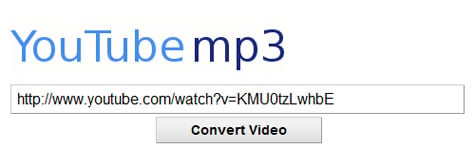 In addition to obtaining music from file-sharing networks, those looking for free tracks often get them from so-called tube-rippers, sites and services that transform YouTube videos into downloadable MP3s.
In addition to obtaining music from file-sharing networks, those looking for free tracks often get them from so-called tube-rippers, sites and services that transform YouTube videos into downloadable MP3s.
These tools are available in several formats including desktop packages, apps for mobile devices, and more commonly browser-based tools. In mid-2012 YouTube owners Google, believed to be under pressure from the music industry, started to make life more difficult for web-based YouTube converters and some cases issued threats to sue.
While some sites decided to shut down, many others continued business as usual, including the German site YouTube-MP3, one of the largest YouTube ripping services around with around 30 million visits per month. The site has long insisted that it has a right to provide ripping services but having fought off Google it recently found itself up against fresh adversaries.
Three music companies under the umbrella of industry group BVMI challenged YouTube-MP3’s assertion that it operates legally and sued it in the Hamburg District Court. The companies said that while YouTube-MP3 claimed to be offering only a rip-and-download service, there were serious technical issues behind the scenes that rendered the site in breach of copyright law.
YouTube-MP3 claimed that users of its service could enter the URL of a YouTube video and have the site convert and churn out an MP3 for download. Apparently, however, that wasn’t always the way it worked. Once a video had been converted to MP3, that audio was stored on YouTube-MP3’s servers. If another user subsequently entered the same YouTube URL, no conversion or ripping was carried out. They were simply handed a copy of the previously stored MP3 for download.

In a statement sent to TorrentFreak, BVMI said that this was a clear breach of copyright law.
“Contrary to the common assumption that YouTubeMP3 is a streamripper that allows users to record songs from the Internet (much as cassette recorders were used to record music from the radio back in the day), in fact the online converter often simply made the pieces available for download without a license,” BVMI said.
BVMI said that by the time the case had arrived in court last month the owner of YouTube-MP3 had already signed cease and desist declarations and agreed to refrain from reproducing and distributing copyright content.
“The current case provides deep insights into the workings of so-called ‘recording services’
and exposes a trick that not only hoodwinks the rights owners but also misleads the users of
these services,” said BVMI Managing Director Dr Florian Drücke.
“Under the guise of private copying [YouTube-MP3] deceives people into thinking that
everything is above-board, even though the user – unwittingly – avails himself of an illegal download platform. We have for some time pointed out that the vague definition of ‘private copies’ encourages cat-and-mouse games in matters of streamripping, so a clarification at the political level is needed here.”
With the signing of the declarations the Hamburg District Court considered the case closed but ordered YouTube-MP3 to pay everyone’s costs.
TorrentFreak contacted the site’s owner for a comment but as yet we’ve received no response. Presumably life at YouTube-MP3 will continue, but without storing converted MP3s for subsequent download. The end result, of course, is that users of the site will still get ripped MP3s just as they did before, a point not lost on BVMI.
“One thing is clear: this platform, as well as most other streamripper sites, generate considerable advertising income that is not shared with the artists or their partners. This has nothing to do with fairness, nor does it fit with our current digital age, when many music sites – some of them free – can be used perfectly legally on the Internet,” BVMI conclude.





